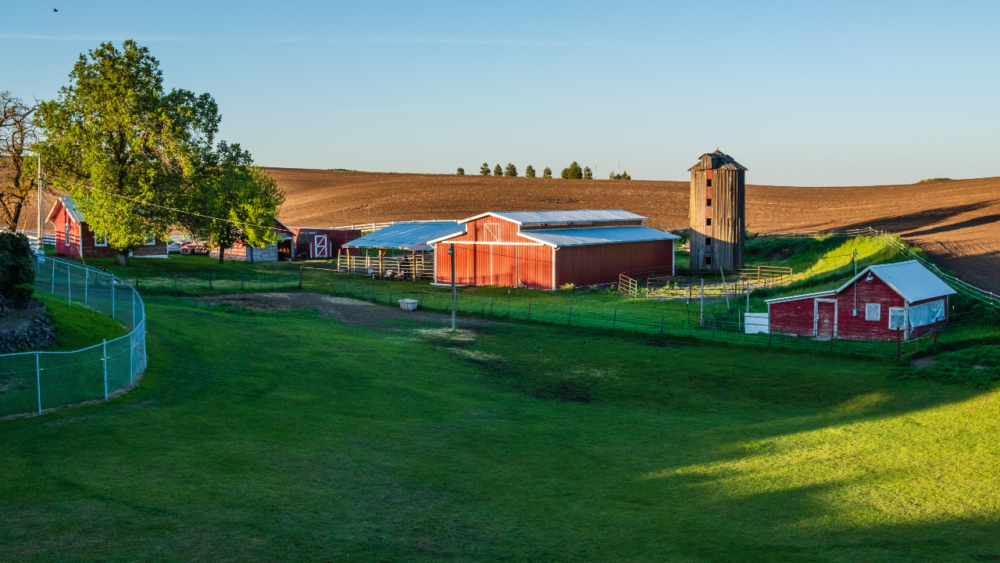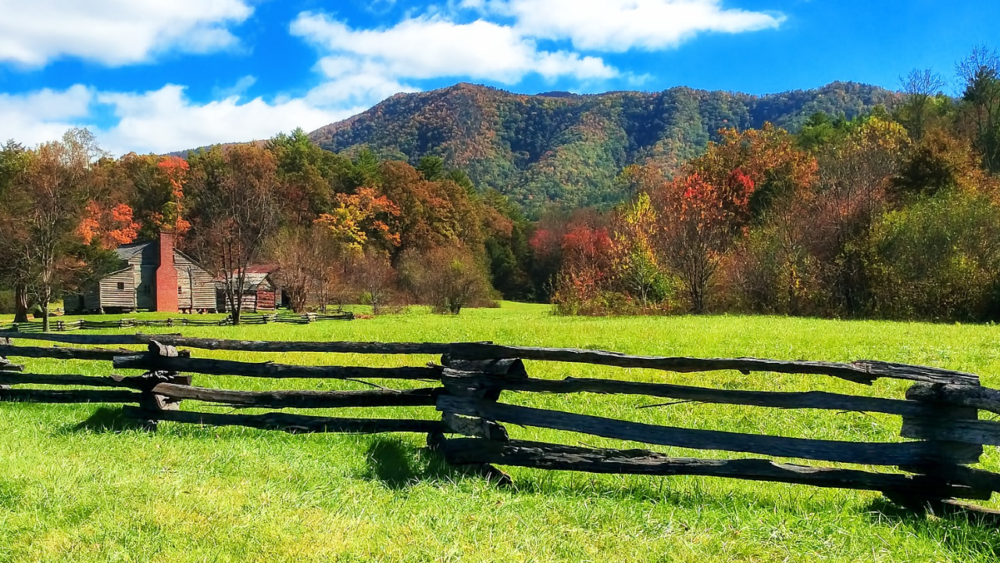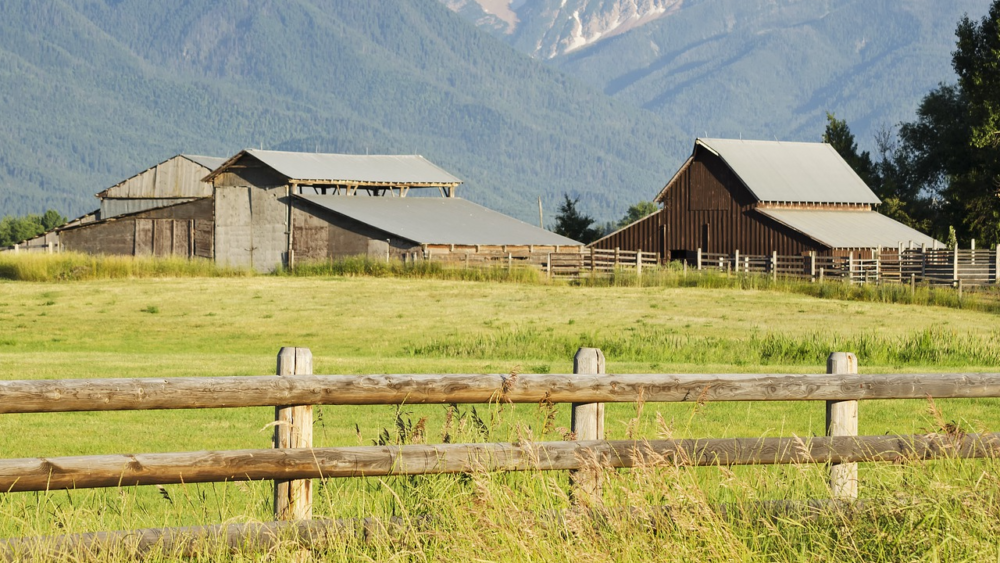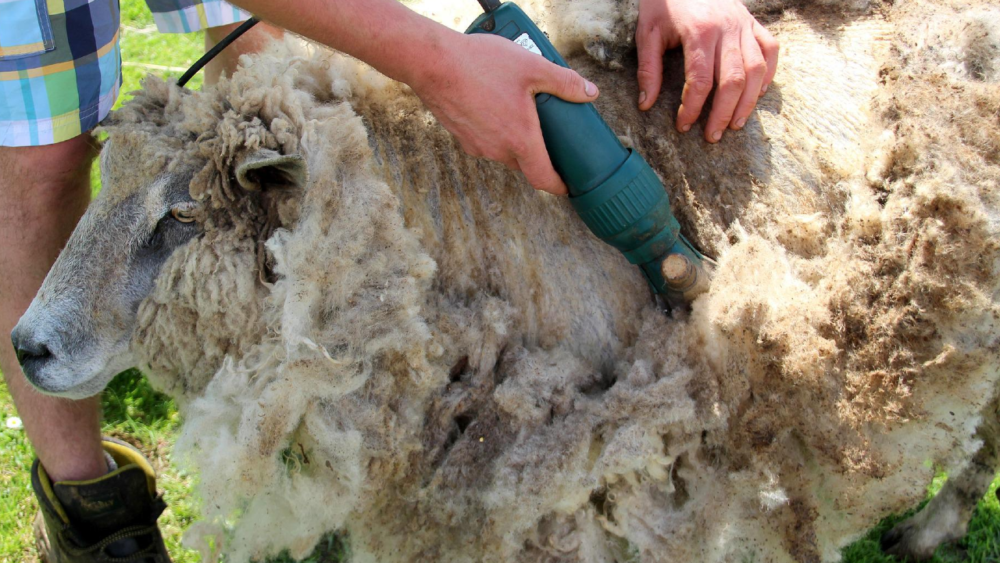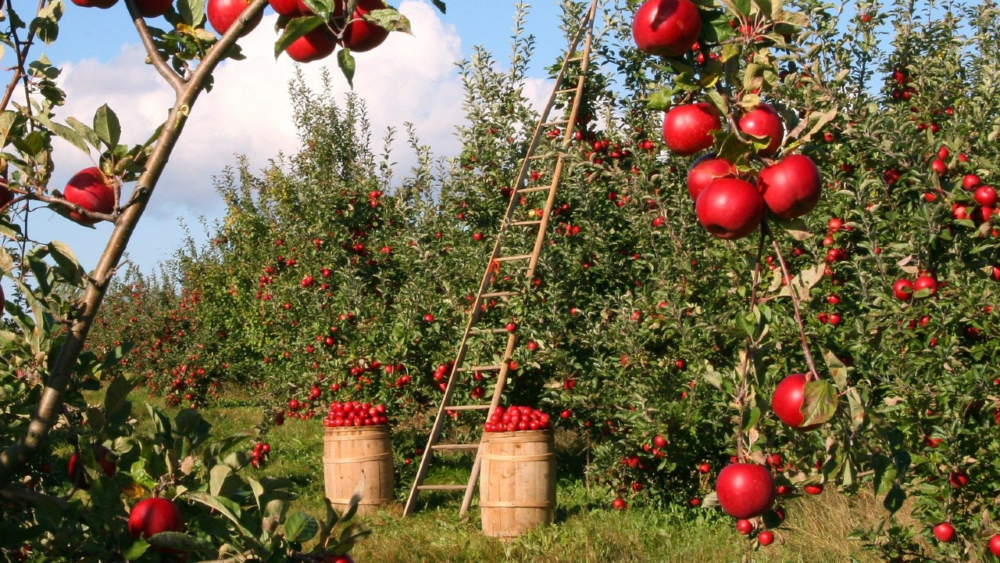We all love shopping, but there is nothing as complicated to buy as a piece of land to call your own. There are so many considerations, so many “oh, I would love that” or “no, I don’t want that” moments in the whole process.
When I started shopping for my first parcel of land that would be my own, I created a checklist to ensure I didn’t just see pretty pastures or a cute barn. In the end, buying land to set up your homesteading dreams requires great logic, expert knowledge, and foresight.
Buyer’s List for Buying Land and a Homestead
When you start land shopping, you need to have a clear idea of what you need, want, and, importantly, can afford and manage. Owning land is a responsibility, and it comes with serious maintenance if you are going to succeed.
I started off by looking at an area where I would like to stay and came up with the following items to check on whenever I viewed a new property and considered it a potential purchase-worthy property.
1. Water Availability and Quality
In my search, I realized some properties had all of the nice things a former city girl may like, but these properties lacked what a farm girl needs—water. If you are going to succeed in your homesteading dreams, you need to ensure there is an ample and consistent supply of water. It is the most important feature for your homestead.
You’ll need to understand surface water, groundwater, and water rights.
Surface Water on Your Homestead
In the Eastern United States, and other areas with abundant rainfall, surface water often provides most or all of the water needs for homesteaders. Homesteaders will often use a spring for house water, ponds for animal and farming water, and streams to generate power. In higher rainfall areas, you may not need to purchase water rights to the water on your property.
But, in most of the United States, you will need to make sure you have rights to surface water on your property. Many states restrict the use of a pond as it is considered separate property from the land. This is especially true in the Western and Southern United States where states have legal agreements to split up surface water and may even sell it to Mexico.
Just because it’s on your property doesn’t always mean you have rights to the water. If you do have a right to the water, you may face other restrictions such as how close to a pond you can water your livestock or where you can dump wastewater.
Ground Water on Your Homestead
Rivers look great, and dams, ponds, and creeks too, but these can quickly dry up if there is insufficient rainfall in the area. Groundwater can provide consistent access to water all year around. But, many areas have restrictions for groundwater usage.
For example, in the Western United States, well water is usually only allowed for household and garden use. It is not always allowed for homesteading, crops, or livestock usage. Homesteaders must acquire surface water rights for those uses.
A well provides water security in dry climates but can come with its own challenges. Depending on your area, you may have to draw water up from an incredible depth. In the U.S., you’ll need to have a certified well company drill for you and will have to pass your well and septic system off with local inspectors.
If you have a well, you’ll have to learn how to maintain it and where to get parts (Home Depot isn’t the answer).
Maintaining Water Pressure
Another water-related consideration is how you will maintain water pressure. If you have a larger homestead, you’ll probably need to harness gravity to maintain water pressure through the use of a water tank. In the U.S. homesteads with more than a handful of acres (5-6) use water tanks that sit on the ground at the highest point of the property. The tanks help maintain water pressure through the system.
Homes and smaller homesteads usually use a pressure tank. If you don’t have a water tank, which provides additional water storage if your system has an issue, make sure you have some water stores for your animals’ water needs.
Buyer’s Guide: If you find a property you like, be sure to ask for a drilling well certificate to prove the rate at which the water pumps, the quantity generated per hour, and a water quality certificate. It’s no use having loads of water, but that water is of such poor quality that it is toxic to you and your animals.
2. Lay of the Land and Grazing
When you take up homesteading, you will probably keep horses, cattle, sheep, pigs, geese, chickens, etc. Perhaps you will also have some cultivated fields or orchards.
These uses of the land require some planning. There are often areas of land available for purchase that seem lovely, but upon closer inspection, you may find reasons why this land would be unsuitable for your purposes.
The first parcel of land I looked at proved unsuitable because there was a significant growth of pine trees and some eucalyptus trees. Since I keep horses and the horses would have to graze those areas, the risk of toxicity was too great.
The lay of the land will also determine the suitability for livestock or cultivation. Steep hills may be okay for grazing, but your dreams of growing corn will vanish.
If you are considering a small parcel of land near the urban fringe of the nearest town, you may also have to think about how much of a one-acre piece of land is usable for animals. Farm owners sometimes expand unwisely, cutting land into sections that are too small to graze effectively.
You may find some land that has rental units on too. This is great in terms of a side income, but it can be a challenge when there are so many cabins or small residential units that there is no longer space for animals.
Buyer’s Guide: Before you sign on the offer to purchase, be sure to ask for a soil quality test, investigate the available grazing, check with the local vet about any health concerns for that area, and ask the local feed store for information on the farms neighboring your potential purchase property.
3. Fencing and General Maintenance
Starting off with a bit of land for the first time is a dream to many, but reality comes crashing the first time your livestock break out onto the local roads due to poorly maintained fences. When considering a property, you should inspect the fences—all of them. Internal fences that divide different pastures and the whole of the external fences should be viewed before making a purchase decision.
If there are no fences, you need to know that too, as this will carry an enormous financial implication. Building fences costs money, labor, and time. In my situation, where I already own horses, I couldn’t consider properties with no fences or cordoned off pastures. This would have meant I couldn’t bring my animals onto the land for several weeks while fences were being constructed.
Buyer’s Guide: Walk the sections of the property you can access during your viewing, have a wiggle at the fences to check for loose posts, and ask to see the owner’s toolshed.
If they have been doing regular maintenance, you will see the tools of the trade—hammers, nails, pliers, fencing materials, and rolled-up left-over fencing. It’s a good idea to ask whether they will be leaving the fencing tools and supplies as part of the sale (which could save you a considerable amount of money).
4. Fire and Water Safety on and Around the Property
While we may all wish we could live in the golden age of having no crime, crime concerns still affect homesteads and mini-farms. Theft, burglary, and violent crimes don’t stick to cities only.
You should consider the safety of the homestead, barns, tool sheds, and pastures around the homestead. This includes fire safety. Consult with the local fire department in that area to determine the prevalence of grass fires, forest fires, and wildfires. Is there a fire management plan in place for this area, and does it include the property you are interested in?
Many of the properties I considered in my search proved too large for me to manage effectively independently. This meant I had to refine my property search to land with secure neighbors who could help with fire management. I also had to look at properties close enough to a town or city, so help was available in case of wildfires.
You will also want to check out the flood zone for your property to assess the risk and frequency of flooding. Many insurance companies won’t insure against flooding so flood loss can be a heavy financial blow.
Buyer’s Guide: Fire and crime can really destroy your property, so be wise and ask the questions to help you decide whether this property is worth it for you, manageable by you, and within reach of help if needed.
5. Neighbors Around the Potential Property
While you may not see your immediate neighbor as closely as you would in a town or city, you still want to know who the neighbors are, whether they are “good” neighbors, or if these neighbors are the reason the current owner is selling.
As the saying goes: good neighbors make good fences. When you take up the homesteading or farming lifestyle, you join a community that stands together to help each other. Being too isolated from your neighbors can lead to issues with safety, and it also means help is a long way off.
Buyer’s Guide: Take the time to meet the neighbors around the property you are interested in. If you can’t meet them, then give them a courtesy call, introduce yourself, and ask a few questions about the area.
6. Travel, Schools, and Shopping
Being on a homestead means you can produce some of your basic food needs, but you will still need food, medicines, and supplies from the nearest town. If that town is over an hour away, you may find it becomes really complicated to travel the distance when needed.
The condition of some backroads may also become a serious factor. Is your homestead in an area that will experience heavy snowfall or heavy rains? Will the roads be plowed, are they paved, or will you have to face deep tire guts along the way?
If you have children, you will need to find out about schools within daily traveling distance, whether there are bus routes available, and if not, consider boarding school options or homeschooling.
Buyer’s Guide: Consider the distance from the property to the nearest stores, travel time, road conditions, and safety if you have to leave your property unattended for a day to go shopping or if you need to visit relatives. Consult with your family about the schooling needs of your children and how you will meet these.
7. Property Income
Presumably, you will be purchasing the property with a mortgage (unless you’ve just inherited a wad of cash). This means you will have a bank to pay and need a steady income.
Consider the realistic income potential of the properties you view. Can the properties pay at least three-quarters of the mortgage? Are there income-generating ventures already in operation that you can simply continue with, such as pig farming, crops, or milk production, that can meet these costs? If not, consider the rental income of letting any additional residences on the property to others.
There is an excellent market for agricultural rental living units close to towns or cities. The peace and quiet appeal to everyone if the property is easily reachable, the rental homes are in good condition, and the price is fair. Enquire from local estate agents what the rental market is like in the area.
Buyer’s Guide: While the banks may not always consider income from the property as part of your mortgage application, it will help you make ends meet when you sit with a loan to repay.
8. Your Property Dreams
Consider the dreams you have for the property. While it may not currently look like your dream, you need to look for a property that can be developed into that dream. Is there space to build that indoor arena for your dressage ambitions one day? Can you convert the piggery into chicken runs for that chicken empire you dream of running?
Buyer’s Guide: Start with an aerial photo of the property—Google Maps is an excellent place to find this and draw in the changes you would like to add. Now envision your end goal and work back to where you are now. The road may not be easy and flawless, but is it doable?
9. Finances and Your Ability to Not Lose Everything
Buying land or any property is a scary prospect for many. There is always the fear that things will go south and you will lose everything. Do you have the means to afford this property if only 50% of the property income has materialized that you envisioned?
Now is not the time to be a dreamer. Instead, be cold and logical. Plot, plan, and get actual estimates to consider when you make your final decisions. Give your finances a serious consideration and get expert help.
Buyer’s Guide: When you start looking at the financial implications of the property, you should draw up a clear budget of your financial means, current costs, expenses, and future costs and expenses that the property may have. Include rates and taxes, mortgage repayments, and operational costs.
Have a close friend run through the costs with you. An outside eye helps you catch where you forgot to add something. Finally, talk to your banker or mortgage agent. Then speak to a different banker and mortgage agent. Get as much financial guidance and input as you can.
Owning your very own land is your dream. Don’t let finances and poor planning strip that dream from you.
What If You Really Can’t Afford Buying Your Dream Homestead?
Having done all your calculations and found a property that you really like, it comes down to whether you can afford it or not. Perhaps you can afford the property operations costs, but you can’t afford a mortgage bond too?
This is not the end of the road. Your dreams aren’t over. There are other financial options to consider:
Take on a Partner With Whom to Buy the Land
While it’s your dream, if you run a homestead well, you can make quite a bit of money from it. Having an investor or silent partner can be a win-win situation. Perhaps that partner is simply investing in the land as a future investment, or they may want a cut of the profits in exchange for a sizable investment or co-signing the mortgage agreement with you.
Buyer’s Warning: Be sure to get an airtight agreement in writing, with witness signatures, in place to protect all parties involved. Make sure to have a signed copy of that agreement in your possession and keep one on file with the bank too.
A buyer’s agreement between two parties that outlines all the responsibilities, privileges, costs, and clauses to cover disputes, buying out, and sales are essential to keep everyone involved honest and protected. Even if that partner is family, be sure to still get a full, written, and witnessed document in place.
Rent to Buy the Property
Another option is to rent the property with the option to purchase it. This option gives you the benefit that you can buy time to start generating income from the property to show the bank that you can succeed in your venture.
If the property is a financially viable option, this is a great way to boost your income for a significant deposit by renting for six months or more and then purchasing the property.
Buyer’s Warning: Be sure to get an airtight rental agreement that stipulates your intention to buy the property at a fixed price within a specified period. This will ensure the owner can’t change their mind after you put in the hard work to make the property viable or increase the price because they want more money. Get a legal expert to draw up the contract, and don’t just opt for a generic contract off the internet.
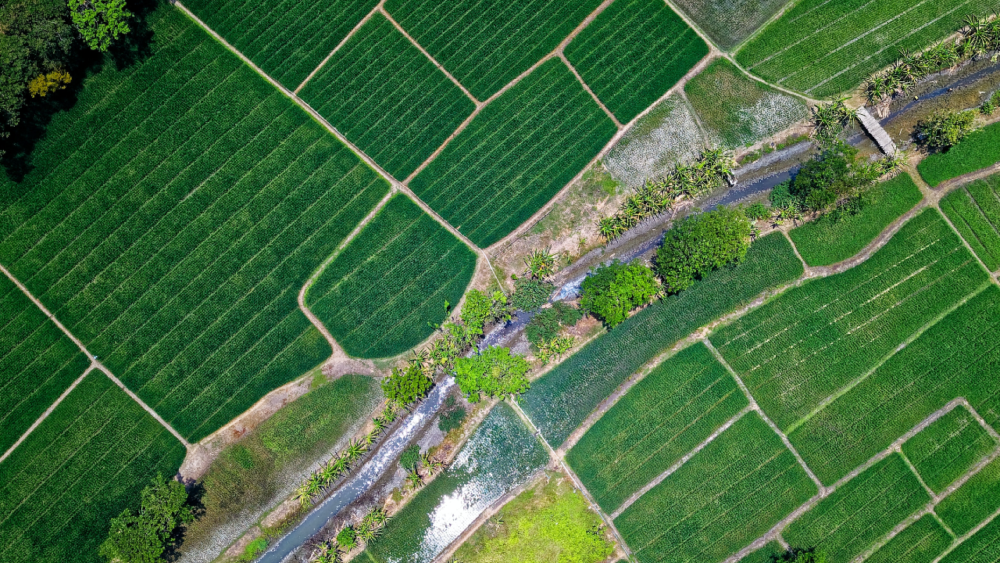
Long-Term Rental Properties
While you can’t really call the property yours while renting, it may be your only option when you can’t afford to buy a homestead and land. As a tenant, you will have certain rights, such as demanding the owner maintain the buildings and fences or provide you with the resources to do so.
You will also have an obligation to maintain the property, and there is the risk of the property being sold, and you have to move. However, while you live on the property, you can experience your dream, live the lifestyle of a true homesteader, and enjoy the happiest days of your life.
Buyer’s Warning: Be sure the landlord gets a legal expert to draw up a sound contract that will protect your rights, set out the landlord’s responsibilities, and also define your responsibilities. The agreement must fix the rental amount and any potential increases. Determine the notice period if you wish to vacate the property and if the owner sells or determines that they want to terminate the contract.
Finding a suitable replacement property can take several months, so ask for three months minimum notice to terminate and vacate the property.
Consider Homesteading for Free Land
Even in 2022, there are areas in the United States where you can get free land. Usually specific cities, counties or states that are facing decreasing populations are giving away land to homeowners who meet certain conditions. You may have to own a business, be willing to homestead, or build a house within 18 months.
Currently, states with free land offers include Kansas, Nebraska, Iowa, Minnesota, Ohio (Cheap use of farmland), Colorado, Michigan, Main, and Alaska. If you are willing and able to meet the individual requirements, you can obtain free land for your homestead.
Conclusion
Owning your own land and homestead is a dream that many have. The lure of fresh air, space, peace, and a slower lifestyle is attractive to anyone who wants to escape the city or urban life. Buying the property of your dreams is possible, but you should keep an open and logical mind.
Have your checklist handy, so you can focus on what you need to see and the information you need to gather when visiting a property. Estate agents may be convenient, but they are also consummate salespeople, and they will try their best to sell a property to you, whether that property is suitable or not.
Get the reality and logical reasons in place before you buy, and you will be able to live your homesteading dreams without regret or failure.
Happy property shopping!

